5 Natural Supplements For Anxiety That Are Good To Know
by Vlasta Kuster
There are at least 5 natural supplements for anxiety that you should make sure everyday foods are rich with...
...as different anxiety moods can also occur when certain elements, minerals, vitamins and fats are lacking in food, making the body unable to cope with stress properly:
1. Natural Supplement for Anxiety: Zinc (Zn) - 8 mg for women, 11 mg for men per day
Zinc in the body is found in numerous enzymes and body structures and is involved in many processes. It plays an important role in digestion, growth, the immune system function, fertility and reproduction, blood glucose regulation and contributes to maintaining healthy bones.
Some neurochemical processes can only take place in the presence of zinc.
Furthermore, we treat it as a natural supplement for anxiety because the synthesis of serotonin also depends on it, which affects well-being and mood as well.
The secretion of melatonin, the pineal gland hormone that regulates aging, strengthens the body's defense capacity and regulates the internal body clock. It is essential for the functioning of the brain and nerves, since it participates in many brain functions.
The Recommended Dietary Allowance (RDA) for adults is 8 mg/ day for women and 11 mg/day for men. The maximum daily dose - Tolerable Upper Intake Level (UL) - for adults is 40 mg/day. This is a value based on reduction in erythrocyte copper-zinc superoxide dismutase activity (source):.
Good sources of zinc in the diet include
- seafood (fish, shellfish, oysters),
- meat (especially poultry and offal),
- whole grains, legumes, sprouts, pumpkin seeds, sesame seeds and cocoa.
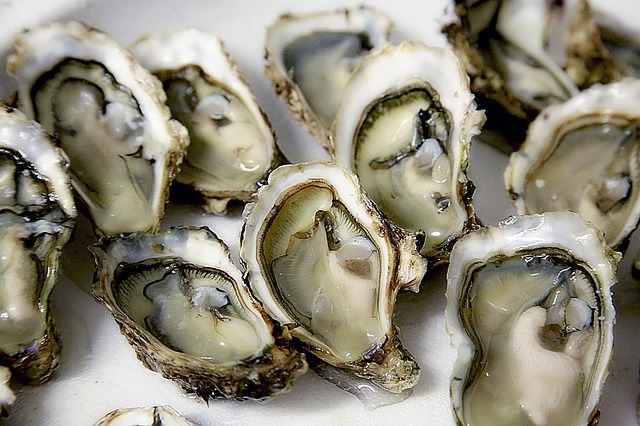
Image by Patricia Alexandre from Pixabay
2. Magnesium (Mg) - Adults 31+ years: men 420 mg and women 320 mg
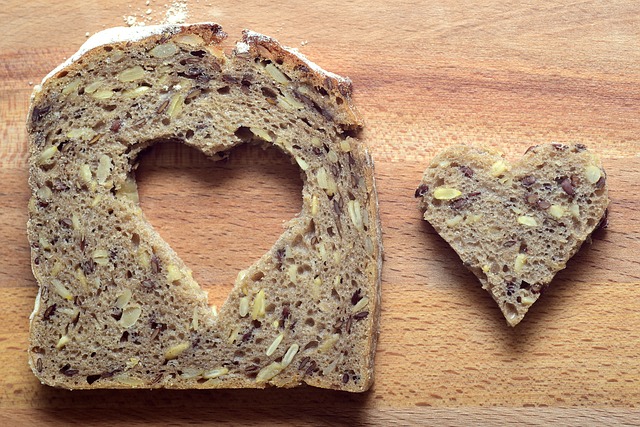
100 g contains 76.6 mg, 25% of RDA of Magnesium "
Image by Ulrike Leone from Pixabay
Magnesium is a mineral that is crucial for maintaining health and wellness.
It calms irritability, relieves spasmodic tension, relieves migraine attacks, effectively protects cells and prevents cardiovascular disease.
It aids to convert food into energy, stimulates the functioning of enzymes and helps regulate the levels of calcium, copper, zinc, potassium, vitamin D and other important nutrients in the body.3
Magnesium is treated as a natural supplement for anxiety because its deficiency is associated with anxiety, and also the following health problems:
- fatigue,
- dizziness,
- insomnia,
- heart failure,
- memory problems,
- loss of appetite,
- migraines,
- hormonal imbalances and many others.
This is why the statistic that nearly 75% of American adults do not consume enough magnesium-rich food is very worrying (the recommended daily amount of magnesium for women over 31 years of age is 320 mg and for men 420 mg.
If you keep a balanced diet, it will ensure that the intake of this important mineral is sufficient.
Fruits especially rich in magnesium include
- kiwis,
- mangoes,
- gooseberries and
- grapes,
Magnesium-rich vegetables include
- artichokes,
- broccoli,
- peas,
- lettuce,
- corn salad,
- potatoes,
- rutabaga,
- rhubarb and raw
- sauerkraut.
Your daily menu should also include
- almonds (just one ounce contains 80 mg of magnesium),
- pumpkin seeds (contain a dizzying 184 mg of magnesium in just a quarter of a cup),
- yogurt with live active cultures (containing 30 mg of magnesium per cup),
- spinach (providing 157mg of magnesium per cup) and
- avocado (containing 58 mg of magnesium in one fruit).
When the body severely lacks magnesium or when the need for it is increased due to increased stress, magnesium dietary supplements can also be helpful.
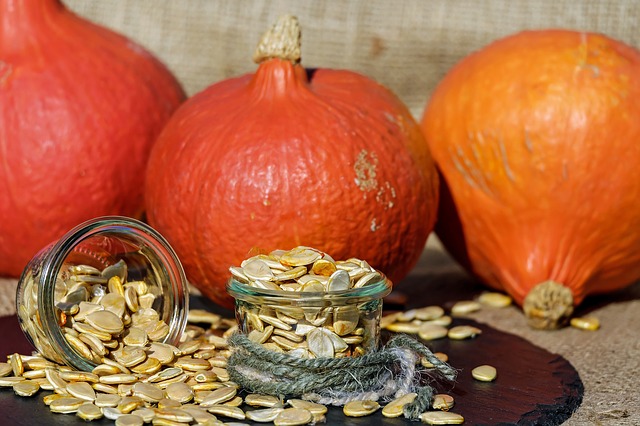
3. Natural Supplements For Anxiety are also B Vitamins - Liver (and Sardines)
B vitamins are crucial for good mental well-being, for feeling energized and for good hormonal function.
Vitamin B1 is a vitamin for boosting mental well-being and for the brain to function well. The body needs it to produce nerves and for the muscles, eyes and digestive tract to function well. Its deficiency is shown in the low tolerance regarding mental challenges, rapid loss of patience and violent reactions.
Good sources of vitamin B1 in food are:
- brewer's yeast,
- wheat germ,
- sunflower seeds,
- oat flakes,
- hazelnuts,
- pistachios,
- peas,
- egg yolks,
- peanuts,
- milk,
- most vegetables,
- lean pork and
- soy.
Vitamin B3 is a vitamin that the body needs to produce the happiness hormone serotonin and to produce energy.
A lack of it leads to
- insomnia,
- being distracted,
- feeling despair,
- having fears and
- neurological disorders that can also lead to depression.
It is found in
- lean meats,
- livers,
- fish,
- poultry,
- eggs,
- paddy rice,
- milk,
- vegetables,
- mushrooms,
- spinach,
- avocados,
- peanuts,
- salmon,
- almonds,
- peas and
- dark chocolate.
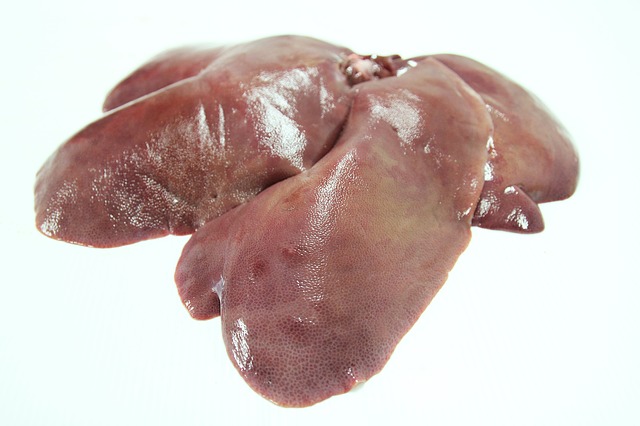
Liver Is a Great Source of Several Nutrients
Image by chadarat sangnin from Pixabay
Vitamin B6 is a vitamin the produces a good mood and a youthful body.
It is especially lacking when you experience mental and / or physical stress that lasts.
When you are vitamin B6 deficient the warning signs include
- fatigue,
- depression,
- tension,
- irritability,
- absence of mind and a
- weak immune system.
Food sources include
- egg yolks,
- liver,
- walnuts,
- peanuts,
- spinach,
- cabbage,
- yeast,
- paddy rice and
- cereal sprouts.
Vitamin B8 is a vitamin for stable mental well-being.
In the event of a deficiency,
- brain activity is reduced and memory loss,
- vomiting,
- dizziness and hair loss can occur.
It is mostly found in
- egg yolks,
- liver,
- walnuts,
- peanuts,
- mushrooms and
- cabbage.
Vitamin B12 affects the binding of all other B vitamins, since there is no absorption without it.
In addition,
- it improves alertness and memory,
- reduces irritability,
- maintains a healthy nervous system,
- prevents dementia and increases energy.
It is consumed when eating
- eggs,
- liver,
- fish,
- cheese,
- milk and
- beer yeast.
4. Vitamin D - go for Sardines !
Vitamin D, also called the "solar vitamin", affects the functioning of at least 35 different tissues in the human body and has numerous positive health benefits.
It acts as a fat-soluble hormone in our body. It is usually associated with bone health treatment and the calcium content in them, however; this hormone has far-reaching effects on the whole body, especially the brain.
Medical studies show that low levels of vitamin D contribute to depression and even chronic fatigue.
So why vitamin D is also one of natural supplements for anxiety listed on this page ?
Adrenal glands need adequate amounts of Vitamin D to regulate the enzyme needed to produce
- dopamine,
- epinephrine and
- norepinephrine - key hormones in the brain that co-decide on well-being, being energized and resistance to stress.
It is not easy to get enough vitamin D.
Exposure to sunlight is the best source, however; the amount of vitamin D that is produced depends on our skin type and where we live (we get more in places with more sun).
Only nutrition (fish oil, liver, eggs and dairy products) yields small amounts of Vitamin D.
Therefore, it is advisable to add it as a dietary supplement.

Sardines (1 cup, drained (149 g)) contain 101% of RDI (Recommended Daily Intake) of Vitamin D and 222 % of Vitamin B12 RDI (Source)
Image by guillermo gavilla from Pixabay
5. Omega-3 Fatty Acids - at least 250 mg per day of EPA and DHA - Mackerels and Sardines again are the Winners
Omega-3 fatty acids are also called essential fatty acids because the body on its own cannot create them.
Scientific research shows that they play an important role in construction and strengthening of the brain and in maintaining equilibrium.
Furthermore, a team of European researchers has proven that a diet rich in omega-3 fats (e.g. Eskimos whose diets contain 16 g of fish oil a day) in the long run leads to an increase in nerve delivery for energy and a positive mood in the part of the brain that controls emotions.
A UK study even shows that treating depression with omega-3 fatty acids improves several symptoms: sadness and fatigue, anxiety and insomnia, decreased libido and constantly thinking about the meaninglessness of life. ( Healing
Without Freud or Prozac: Natural approaches to curing stress, anxiety
and depression: Natural Approaches to Curing Stress, Anxiety and
Depression Without Drugs and Without Psychoanalysis)
The main source of omega-3 fatty acids are algae and plankton, which are found in fish and seafood.
Natural fish are more abundant in omega-3s than farmed fish.
The most reliable source of omega-3s and the least poisoned with mercury and other poisons are smaller fish such as
- mackerel,
- anchovies,
- sardines and
- herring.
Other good sources include
- tuna,
- haddock,
- salmon and
- trout.
Good plant sources of omega-3s are
- flaxseed,
- flaxseed oil,
- rapeseed oil,
- hemp oil and walnuts.
All green leafy vegetables also contain omega-3 but in smaller quantities.
One of the best plant resources is
- common purslane,
- followed by spinach, algae, spirulina and watercress
Recommended daily usage is about 8 ounces (226.g) of cooked, edible portion. per week of a variety of seafood, which provide an average consumption of 250 mg per day of EPA and DHA,
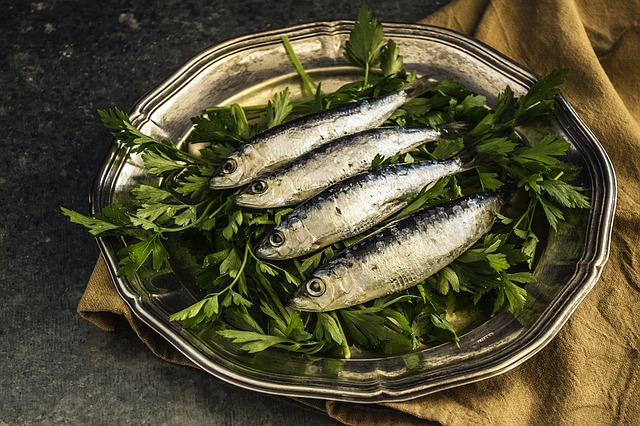
Sardines (1 cup, drained (149 g)) also contain 10x of RDI (Recommended Daily Intake) of Omega3-acids
Image by DanaTentis from Pixabay
If you would like to have a positive effect on your mental well-being and reduce unpleasant anxiety-related feelings and physical reactions, then the next time you go shopping remember to fill your shopping cart with foods rich in these important nutrients.
In addition to a balanced diet, you can also benefit from an energy treatment called the Emotional Freedom Technique (EFT).
The basic idea of this method is that the cause of all negative emotions comes from a disturbance in the body's energy system.
By tapping (gently tapping) certain meridional points on your head and chest, you stimulate your energy flow again and balance your energy system. In order to tune in to the disorder or problem, you simultaneously say certain words while tapping. By using this method you clear your emotional blockages over time and release them and restore your body’s equilibrium.
Vlasta Kuster, holds an MA degree in Basic Medical Sciences and uses her 3-month EFT therapy in her work to help people to do away with panic attacks and anxiety for good. She has more than 10-year experiences in EFT therapy and achieves at least 90% success in permanently eliminating anxiety and panic attacks. You may contact her through her website freeofpanic.com

